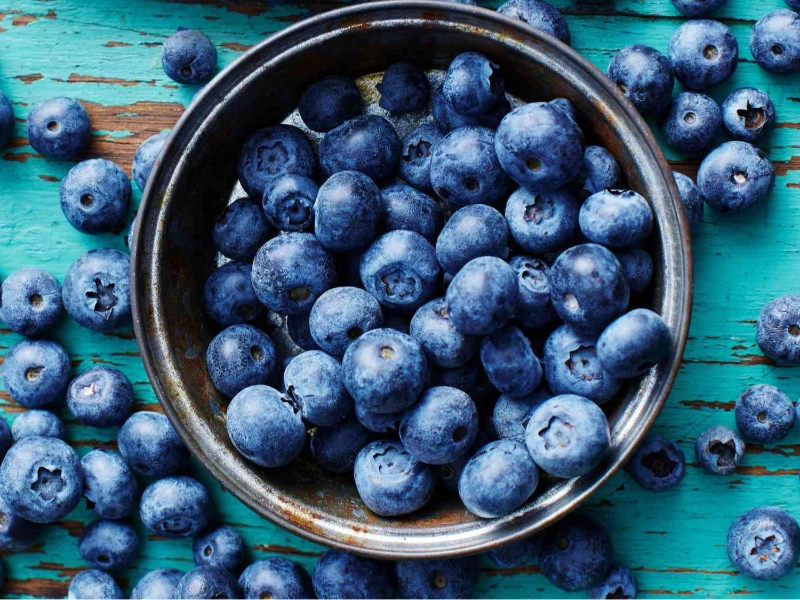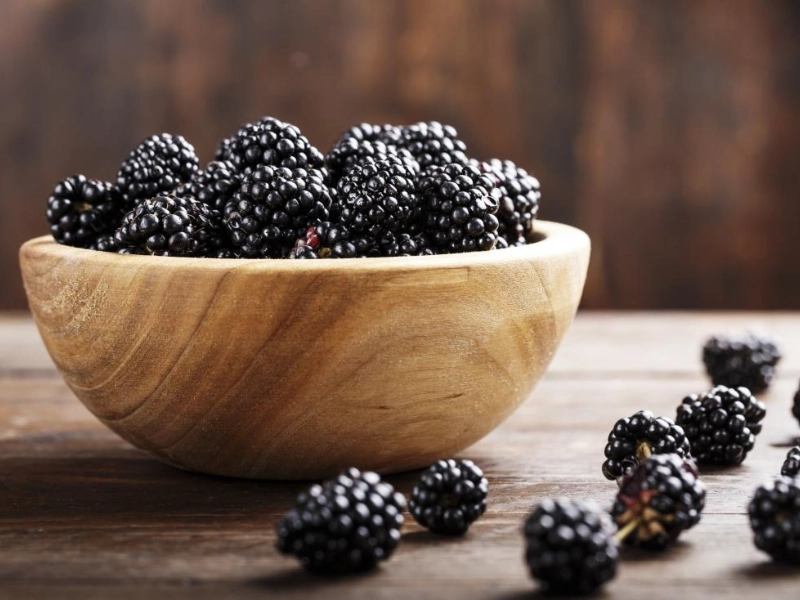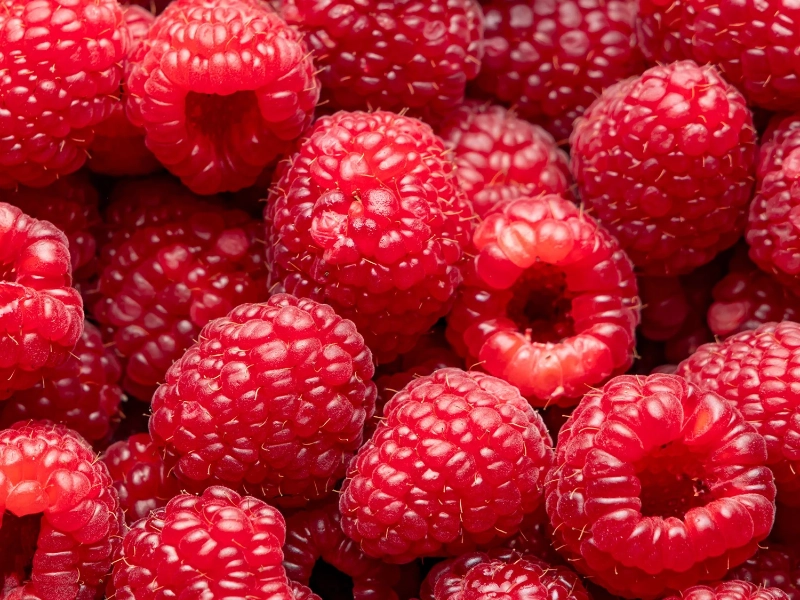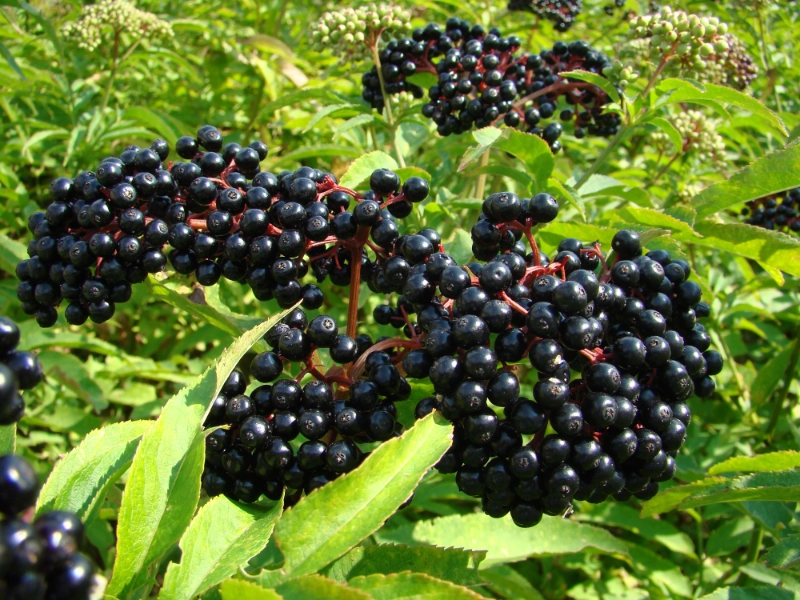When it comes to nutrition, berries deliver an impressive punch in a small package. They are loaded with essential vitamins, minerals, and phytochemicals that help fight cancer. Incorporate berries into your morning smoothie or use them as a topping for salads. However, it's important to note that not all berries are equally beneficial.

 Blackberries are nutrient-dense, offering significant amounts of vitamins C and K. They contain anthocyanins that help prevent plaque buildup in arteries and reduce inflammation. Traditionally, blackberries have been used in herbal medicine to aid childbirth, believed to be due to their muscle-relaxing properties.
These berries also boast antioxidants like ellagic acid and quercetin, which combat free radicals that contribute to aging and disease. Blackberries are an excellent source of insoluble fiber, promoting healthy digestion and preventing constipation. One cup provides nearly 50% of the recommended daily fiber intake.
Blackberries are nutrient-dense, offering significant amounts of vitamins C and K. They contain anthocyanins that help prevent plaque buildup in arteries and reduce inflammation. Traditionally, blackberries have been used in herbal medicine to aid childbirth, believed to be due to their muscle-relaxing properties.
These berries also boast antioxidants like ellagic acid and quercetin, which combat free radicals that contribute to aging and disease. Blackberries are an excellent source of insoluble fiber, promoting healthy digestion and preventing constipation. One cup provides nearly 50% of the recommended daily fiber intake.
 Red raspberries are rich in potassium, which can help lower blood pressure. The phytochemicals in raspberries combat systemic inflammation linked to high blood pressure.
Low in calories and fat, raspberries contain soluble fiber that slows sugar absorption, aiding in blood sugar management. They are also a good source of vitamin C, which supports digestive health and may promote collagen production in the skin, reducing signs of aging.
Add fresh or frozen raspberries to yogurt, cereal, or oatmeal, or enjoy them on their own, in smoothies, or mixed into cocktails.
Red raspberries are rich in potassium, which can help lower blood pressure. The phytochemicals in raspberries combat systemic inflammation linked to high blood pressure.
Low in calories and fat, raspberries contain soluble fiber that slows sugar absorption, aiding in blood sugar management. They are also a good source of vitamin C, which supports digestive health and may promote collagen production in the skin, reducing signs of aging.
Add fresh or frozen raspberries to yogurt, cereal, or oatmeal, or enjoy them on their own, in smoothies, or mixed into cocktails.

Strawberries are an excellent source of vitamin C and contain natural compounds with anti-inflammatory properties. They help protect against heart disease, high blood pressure, cancer, and constipation. The phenolic compounds found in strawberries, including anthocyanins, quercetin, and kaempferol, have been shown to enhance detoxification processes and inhibit enzymes that promote inflammation. Low in sugar, strawberries can help lower insulin levels, making them suitable for individuals with diabetes. Research indicates that regular berry consumption can reduce oxidative stress and cognitive decline in older adults, and they may also alleviate inflammatory conditions like osteoarthritis and knee pain.
 A cup of raw elderberries offers 52 mg of vitamin C and 10 grams of dietary fiber. They are also abundant in antioxidant flavonols such as quercetin, kaempferol, and isorhamnetin.
Animal studies suggest that anthocyanin-rich black elderberries can enhance heart health by lowering cholesterol levels and blood pressure. They may also help reduce uric acid levels in the blood, which is linked to heart disease.
Elderberries can be found in pies, tea, wine, and juice, or as dietary supplements. However, unripe or raw elderberries can cause gastrointestinal issues, so it’s best to choose standardized extracts or syrups to avoid side effects.
A cup of raw elderberries offers 52 mg of vitamin C and 10 grams of dietary fiber. They are also abundant in antioxidant flavonols such as quercetin, kaempferol, and isorhamnetin.
Animal studies suggest that anthocyanin-rich black elderberries can enhance heart health by lowering cholesterol levels and blood pressure. They may also help reduce uric acid levels in the blood, which is linked to heart disease.
Elderberries can be found in pies, tea, wine, and juice, or as dietary supplements. However, unripe or raw elderberries can cause gastrointestinal issues, so it’s best to choose standardized extracts or syrups to avoid side effects.
 Juniper berries are recognized for their anti-inflammatory properties and disease prevention. Rich in antioxidants like flavonoids and monoterpenes, they also contain iron, which is essential for blood production.
These berries act as a natural diuretic and may assist with weight loss. Historically, juniper berries have been used to treat respiratory ailments, digestive issues, and urinary tract infections.
Moreover, juniper berry oil can be effective for insomnia and promoting relaxation. However, excessive consumption of juniper berries or their essential oil may lead to stomach upset and kidney irritation. Pregnant women should avoid juniper berry supplements, as they can stimulate the uterus and potentially induce miscarriage.
Juniper berries are recognized for their anti-inflammatory properties and disease prevention. Rich in antioxidants like flavonoids and monoterpenes, they also contain iron, which is essential for blood production.
These berries act as a natural diuretic and may assist with weight loss. Historically, juniper berries have been used to treat respiratory ailments, digestive issues, and urinary tract infections.
Moreover, juniper berry oil can be effective for insomnia and promoting relaxation. However, excessive consumption of juniper berries or their essential oil may lead to stomach upset and kidney irritation. Pregnant women should avoid juniper berry supplements, as they can stimulate the uterus and potentially induce miscarriage.